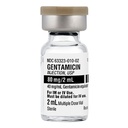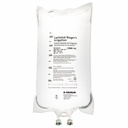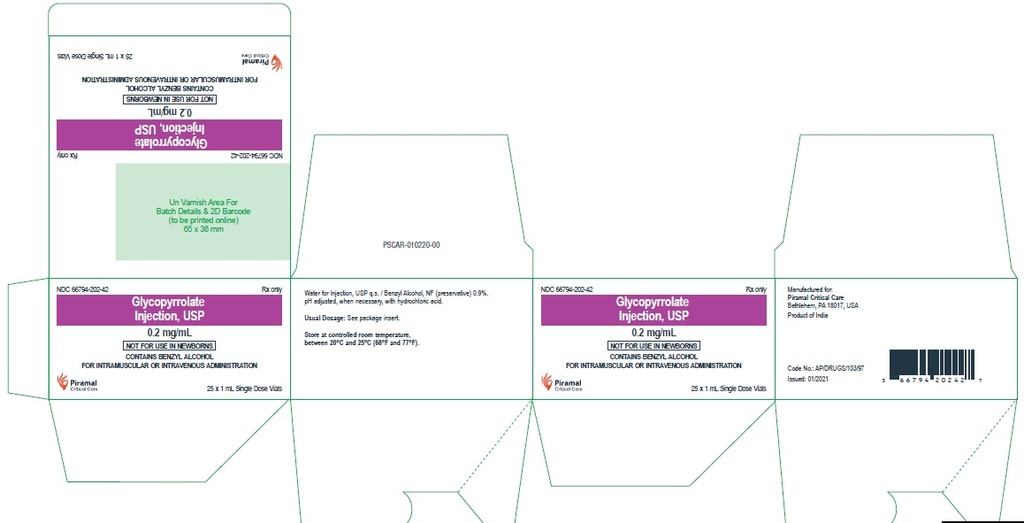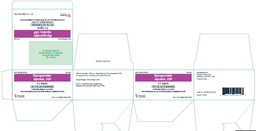Glycopyrrolate 0.2mg | 2mL Injectable SDV
PIR-66794020342
Piramal Critical Care
-
RX License on File Required to Order
Detail
Anticholinergic
Glycopyrrolate 0.2mg/mL Injectable Solution is a sterile, non-pyrogenic, and ready-to-use anticholinergic medication designed for various clinical applications, including anesthesia adjunct, and reduction of secretions. Each 2mL single-dose vial (SDV) contains 0.2mg of Glycopyrrolate, ensuring precise dosing for effective management of patients' needs. This medication is widely used in medical and surgical settings to optimize patient care by reducing salivation, respiratory secretions, and other involuntary bodily fluids during surgical procedures.
Key Features:
- Anticholinergic Agent: Glycopyrrolate is an anticholinergic medication that works by blocking the action of acetylcholine on muscarinic receptors, effectively reducing secretions in the respiratory tract, saliva, and other bodily fluids. This action helps in maintaining clear airways and reducing the risk of aspiration during surgical procedures.
- Sterile and Ready-to-Use: The solution is provided in a sterile, preservative-free, single-dose vial, ensuring safety and ease of use in various clinical settings. The 2mL vial offers a precise dose, minimizing the risk of contamination and ensuring accurate administration.
- Pre-Operative and Intra-Operative Use: Glycopyrrolate is commonly used as a pre-anesthetic medication to reduce salivary, tracheobronchial, and pharyngeal secretions. It is also used intra-operatively to counteract drug-induced bradycardia and as an adjunct to anesthesia to maintain stable heart rate and secretions.
- Effective Duration of Action: Glycopyrrolate has a longer duration of action compared to other anticholinergic agents like atropine, making it a preferred choice in surgical and perioperative care. This ensures prolonged effects and fewer doses, enhancing patient comfort and care efficiency.
- Use in Reversal of Neuromuscular Blockade: Glycopyrrolate is often used in combination with cholinesterase inhibitors, such as neostigmine, to reverse the effects of non-depolarizing muscle relaxants after surgery. Its anticholinergic properties help mitigate the muscarinic side effects associated with cholinesterase inhibitors.

 0
0



